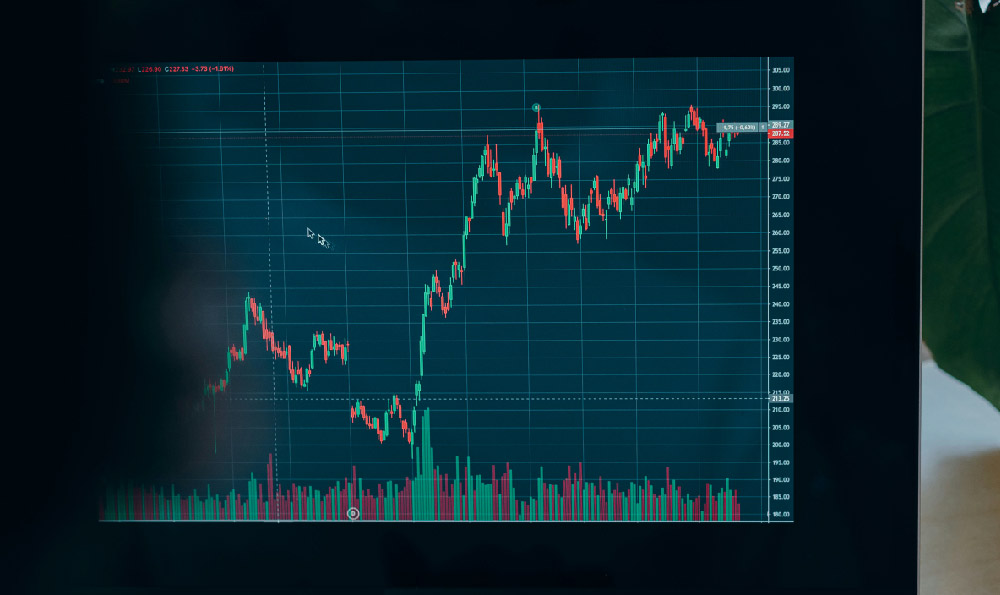Navigating the world of investments, especially in today's dynamic market, can feel like traversing a labyrinth. The question, "What stocks should I buy? Which are the best investments now?" is one that resonates with novice and seasoned investors alike. There's no magic formula, no guaranteed path to riches. However, by understanding key market principles, analyzing your own risk tolerance, and conducting thorough research, you can make informed decisions that align with your financial goals.
Understanding Your Financial Landscape: The Foundation of Sound Investment
Before diving into specific stock recommendations or trending investment opportunities, a crucial first step involves a frank self-assessment. What are your financial goals? Are you saving for retirement decades away, a down payment on a house within the next few years, or a shorter-term objective like a vacation? Your investment horizon – the length of time you plan to hold your investments – drastically influences the types of assets you should consider.

Furthermore, understanding your risk tolerance is paramount. Are you comfortable with the possibility of losing a significant portion of your investment in exchange for the potential of higher returns? Or do you prefer a more conservative approach, prioritizing capital preservation over aggressive growth? This awareness will guide you towards investments that match your comfort level and prevent you from making emotionally driven decisions during market volatility.
Finally, consider your current financial situation. Do you have high-interest debt that needs to be addressed before investing? Do you have a sufficient emergency fund to cover unexpected expenses? Addressing these foundational elements is crucial to ensure that your investment strategy is built on a solid base.
Deciphering the Market Signals: Macroeconomic Factors and Industry Trends
The stock market doesn't operate in a vacuum. It's inextricably linked to the broader macroeconomic environment. Factors such as interest rates, inflation, economic growth, and geopolitical events can significantly impact stock prices and investment opportunities. Keeping abreast of these trends is vital for making informed investment decisions.
For instance, rising interest rates typically lead to lower stock valuations as borrowing becomes more expensive for companies. Inflation can erode consumer spending and corporate profits, impacting certain sectors more than others. Conversely, periods of strong economic growth often fuel stock market rallies, driven by increased corporate earnings and investor optimism.
Beyond macroeconomic trends, specific industry sectors also experience cycles of growth and decline. Technological advancements, regulatory changes, and shifts in consumer preferences can all create opportunities and challenges within various industries. Identifying these trends requires diligent research and an understanding of the competitive landscape.
Diversification: The Cornerstone of Risk Management
One of the most fundamental principles of investing is diversification. It simply means spreading your investments across a variety of asset classes, industries, and geographic regions. By diversifying, you reduce your exposure to the risk of any single investment significantly impacting your overall portfolio.
Consider allocating your investments across different asset classes such as stocks, bonds, real estate, and commodities. Within the stock market, diversify across different sectors such as technology, healthcare, financials, and consumer discretionary. Investing in international markets can further diversify your portfolio and expose you to growth opportunities in emerging economies.
While diversification doesn't guarantee profits or prevent losses, it can help to mitigate risk and smooth out the returns of your portfolio over time.
Specific Investment Opportunities to Consider (with a Caveat)
It's impossible to provide specific stock recommendations without a thorough understanding of your individual circumstances and risk tolerance. However, I can offer some general areas of opportunity based on current market trends:
- Technology: Companies involved in cloud computing, artificial intelligence, cybersecurity, and renewable energy continue to show long-term growth potential. Look for companies with strong competitive advantages, innovative products, and solid financial fundamentals.
- Healthcare: The aging global population and increasing demand for healthcare services create opportunities in the pharmaceutical, biotechnology, and medical device industries. Companies developing innovative treatments and addressing unmet medical needs may offer attractive investment prospects.
- Renewable Energy: As the world transitions towards a more sustainable energy future, companies involved in solar, wind, and other renewable energy technologies are poised for growth. Government policies and increasing consumer awareness are driving demand for clean energy solutions.
- Emerging Markets: Developing economies in Asia, Africa, and Latin America offer potentially higher growth rates than developed markets. However, investing in emerging markets also comes with higher risks, including political instability and currency fluctuations. Thorough research and careful selection are crucial.
- Value Stocks: In periods of market uncertainty, value stocks – companies trading at a discount to their intrinsic value – can offer a more defensive investment approach. These companies often have strong balance sheets, consistent earnings, and a history of paying dividends.
Important Considerations and Cautions:
- Do your own research: Never blindly follow investment recommendations from anyone, including me. Conduct your own thorough research and due diligence before investing in any stock or asset.
- Understand the risks: Every investment carries risk. Be aware of the potential downsides before investing.
- Consider your time horizon: Short-term trading is often speculative and risky. Long-term investing is generally more suitable for building wealth.
- Don't put all your eggs in one basket: Diversify your investments to reduce risk.
- Seek professional advice: If you're unsure about how to invest, consult a qualified financial advisor.
- Beware of scams: Be wary of get-rich-quick schemes and promises of guaranteed returns.
- Stay informed: Keep up-to-date with market news and economic trends.
The Bottom Line: An Ongoing Journey, Not a Destination
Investing is a continuous learning process. The "best" investments are not static entities but rather depend on evolving market conditions, your personal circumstances, and your investment goals. Embrace a mindset of continuous learning, adapt your strategies as needed, and always prioritize a well-diversified, risk-managed approach. By following these principles, you can increase your chances of achieving your financial objectives and building long-term wealth.












